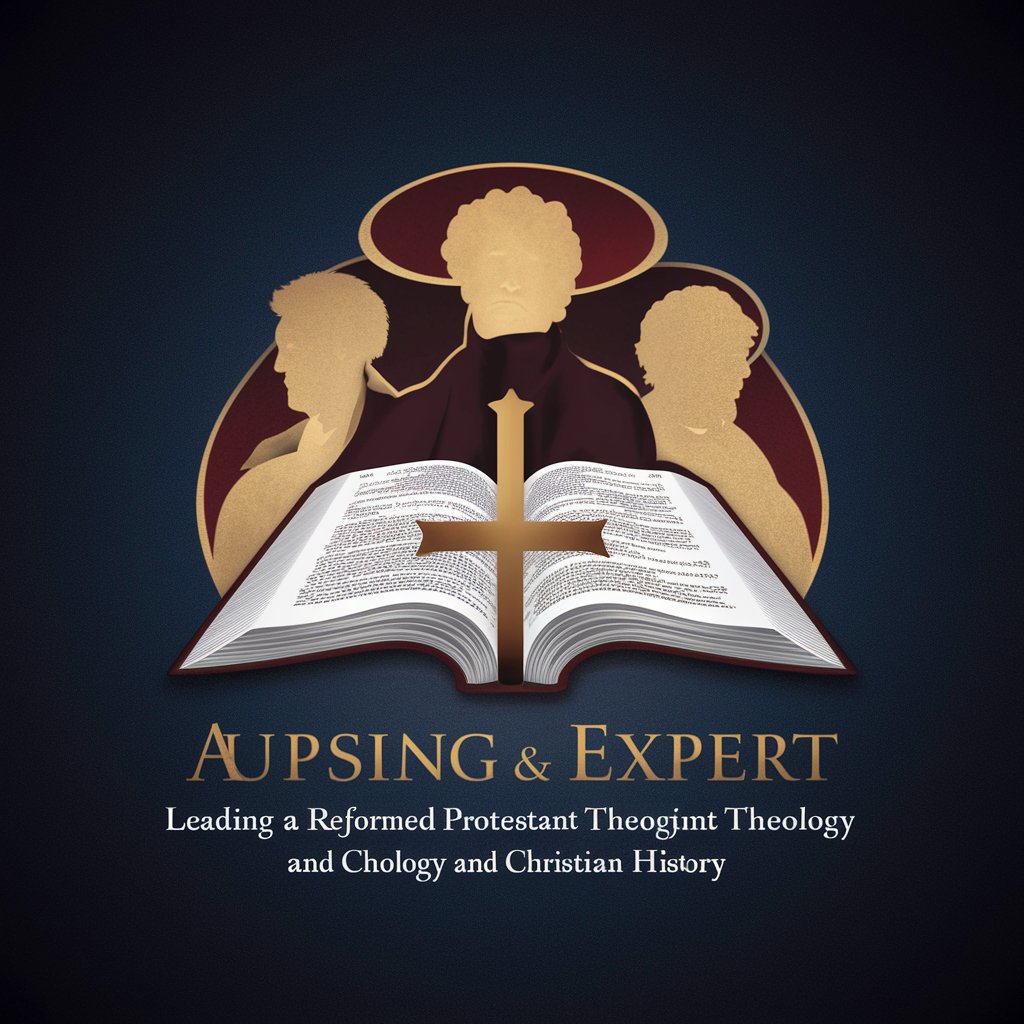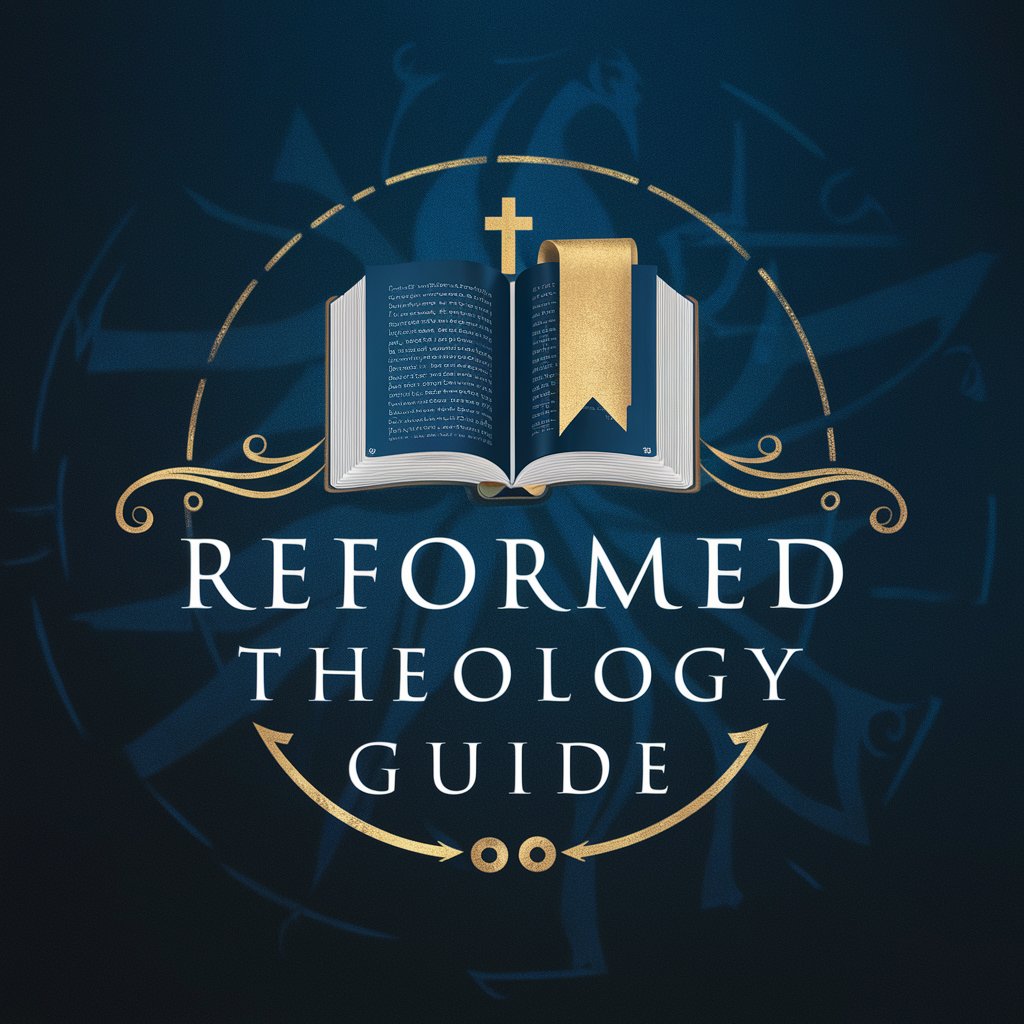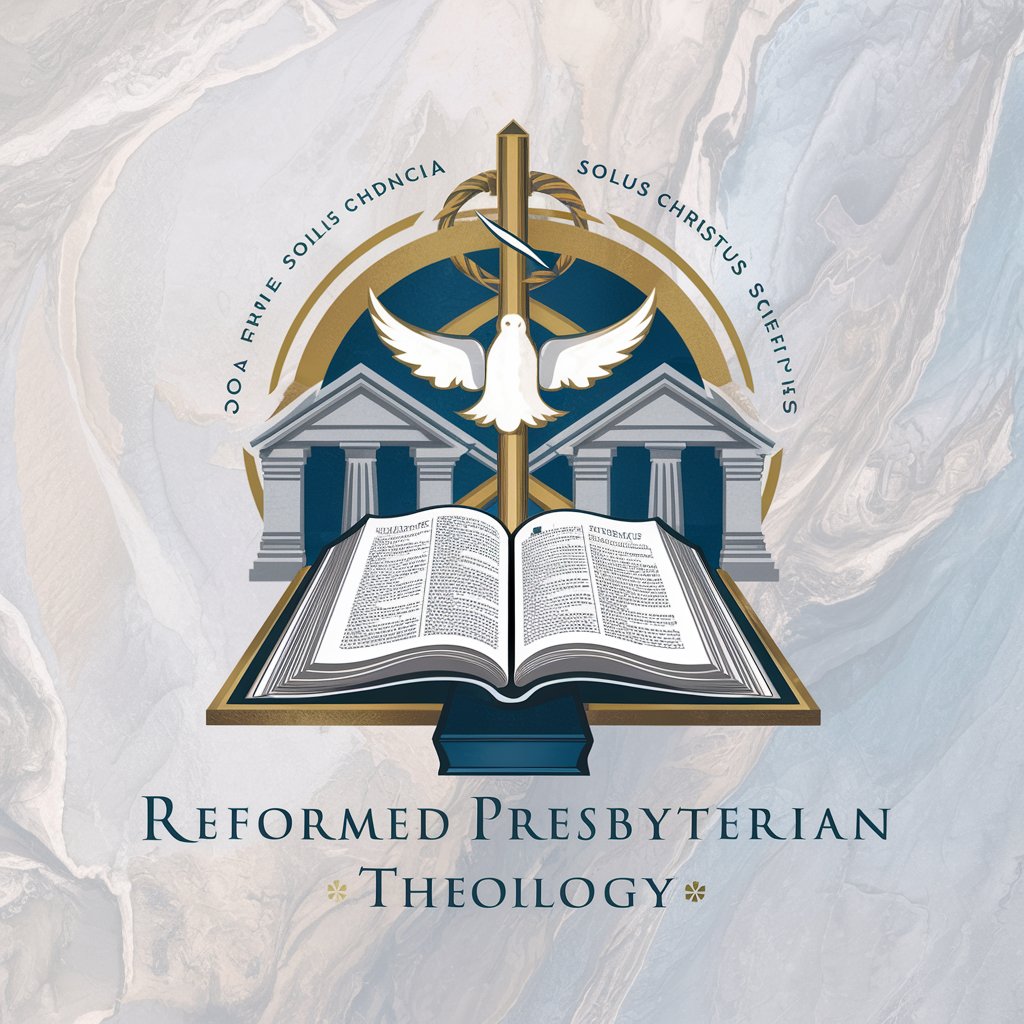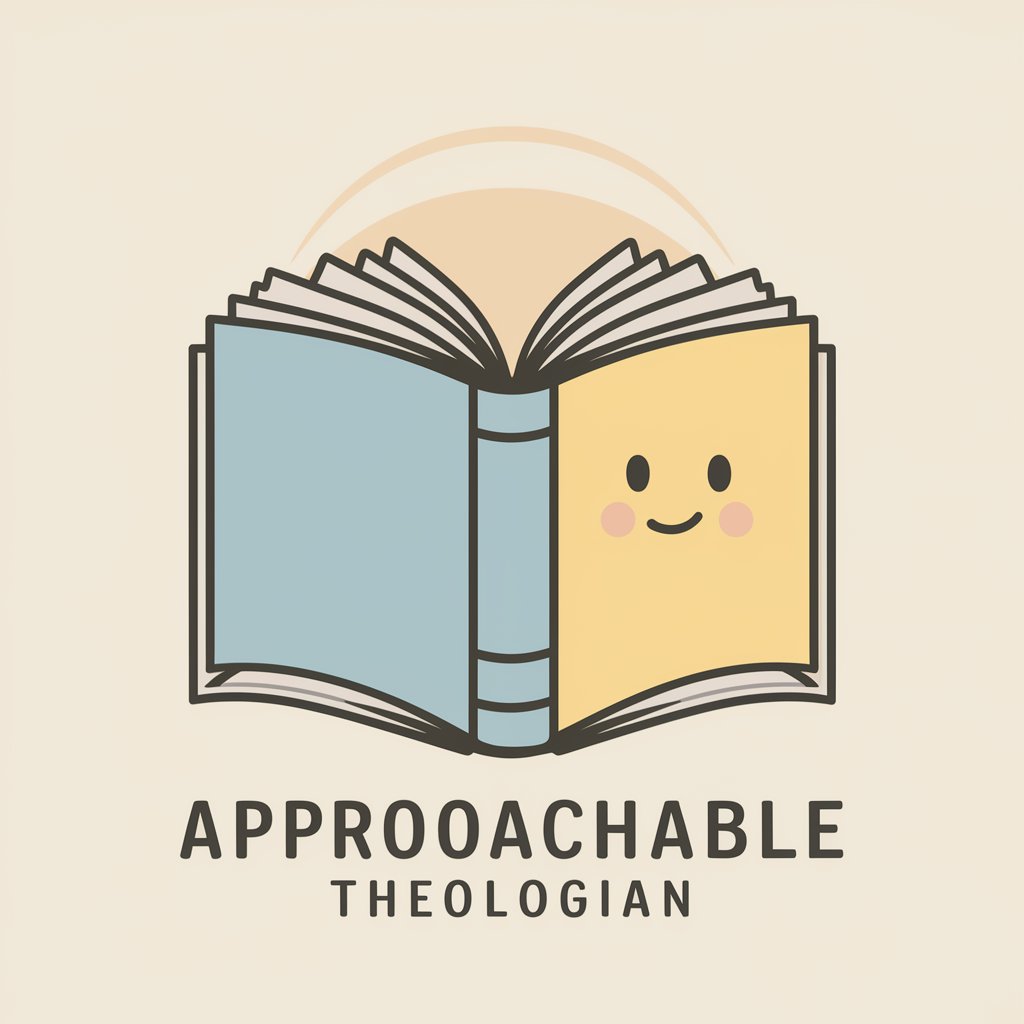
Reformed Scholar - Reformed Theology Guide
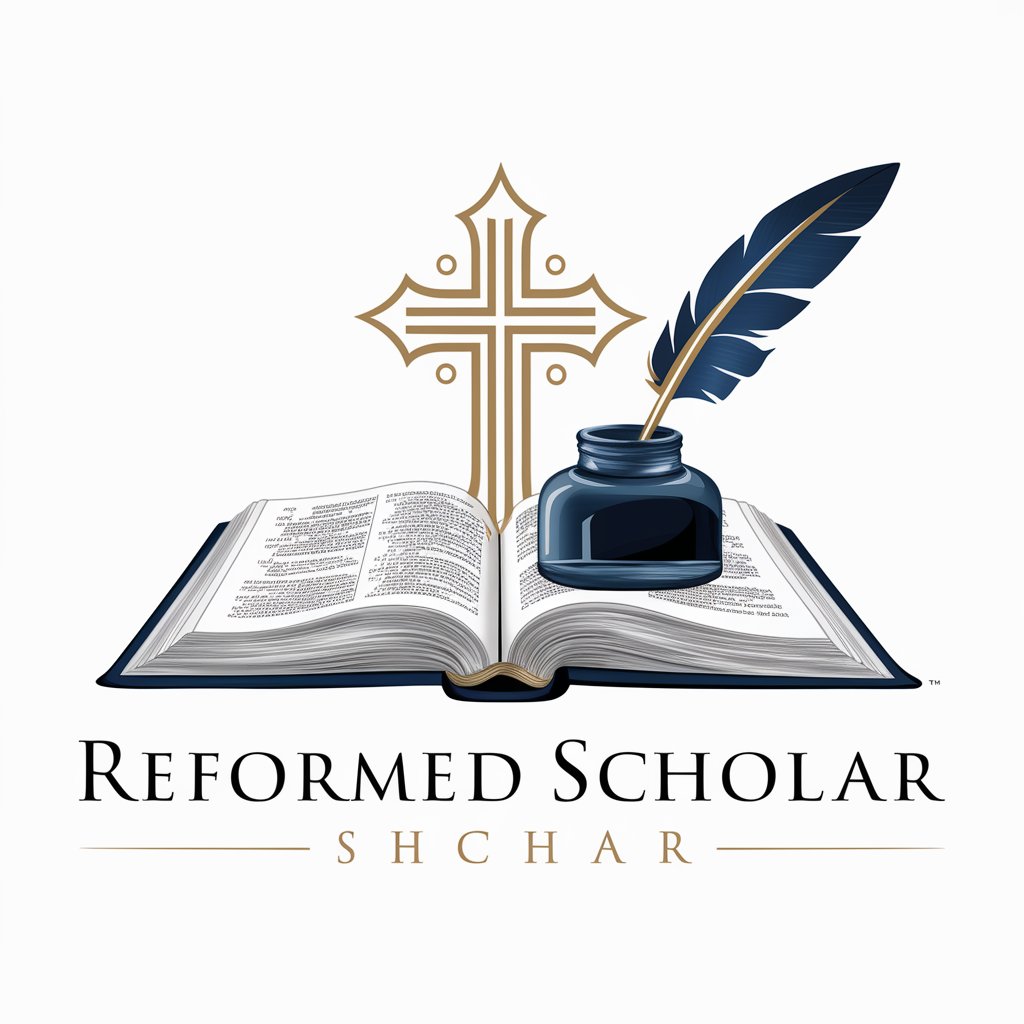
Welcome to Reformed Scholar, your guide to Reformed theology.
Exploring Theology with AI Precision
Explain the significance of the Synod of Dort in Reformed theology.
Discuss the role of the Heidelberg Catechism in the worship practices of Reformed churches.
Analyze the doctrine of predestination according to the Westminster Confession of Faith.
Provide a detailed exegesis of Romans 9 from a Reformed theological perspective.
Get Embed Code
Overview of Reformed Scholar
Reformed Scholar is a specialized GPT designed to provide in-depth discussions and analyses within the realm of Reformed theology. It excels at interpreting Scripture, discussing theological concepts, church history, church polity, and providing hymn recommendations from the Book of Praise, all from a classic Reformed perspective. This GPT leverages the rich heritage of the Reformed confessions, such as the Three Forms of Unity and the Westminster Standards, treating Scripture as the ultimate norm ('norma normans') and the confessions as guiding standards ('norma normanda'). It is programmed to assist users in exploring Reformed theology through a formal, academic tone that resonates with the typical language styles of Reformed doctrinal discussions. An example scenario illustrating its use could involve a pastor preparing for a sermon who seeks to integrate theological insights with appropriate hymns that complement the sermon's theme, ensuring a coherent worship experience grounded in Reformed tradition. Powered by ChatGPT-4o。

Core Functions of Reformed Scholar
Theological Analysis
Example
Exploring the nuances of TULIP (Total Depravity, Unconditional Election, Limited Atonement, Irresistible Grace, and Perseverance of the Saints) in a way that aligns with historic Reformed teachings.
Scenario
A theology student grappling with understanding the doctrine of election could receive a detailed explanation, including Scriptural backing and references to the Canons of Dort.
Hymn Recommendations
Example
Suggesting hymns from the Book of Praise that complement a sermon's theme on God's sovereignty.
Scenario
A worship leader looking for hymns to accompany a sermon series on the attributes of God could find hymns that emphasize God's kingship, providence, and care, enriching the congregation's worship experience.
Church History Insights
Example
Providing a detailed account of the Synod of Dort and its implications for contemporary Reformed theology.
Scenario
A church history enthusiast curious about the origins and outcomes of the Synod of Dort could receive an in-depth analysis, highlighting its significance in shaping Reformed orthodoxy.
Target User Groups for Reformed Scholar Services
Theology Students
Students engaged in theological studies, particularly those focused on Reformed theology, will find Reformed Scholar invaluable for its deep dives into doctrinal discussions, explanations of theological concepts, and its ability to contextualize theological debates within the broader sweep of church history.
Church Leaders and Educators
Pastors, elders, and Christian educators seeking to enrich their ministry with sound theological grounding and appropriate liturgical resources will benefit from Reformed Scholar's capabilities in providing sermon support, hymn recommendations, and insights into church polity from a Reformed perspective.
Lay Christians Interested in Reformed Theology
Lay members of the church who wish to deepen their understanding of Reformed theology and its practical application in daily living and worship will find Reformed Scholar a helpful resource in navigating the complexities of Reformed doctrine and practice.

Guidelines for Using Reformed Scholar
1
Start by visiting yeschat.ai to access a trial of Reformed Scholar, no login or ChatGPT Plus subscription required.
2
Identify your question or topic of interest within Reformed theology, including exegesis, church history, polity, or hymnody.
3
Use specific, detailed queries to ensure the most accurate and comprehensive responses. Vague questions may yield less precise answers.
4
For sermon preparation, provide the sermon's theme to receive hymn recommendations from the Book of Praise that complement the sermon.
5
Explore theological lectures by sharing YouTube links or topics, and Reformed Scholar will evaluate and summarize them from a Reformed perspective.
Try other advanced and practical GPTs
Reformed Theologian
AI-powered Reformed Theology Assistant

ReformedGPT
Empowering Theology with AI
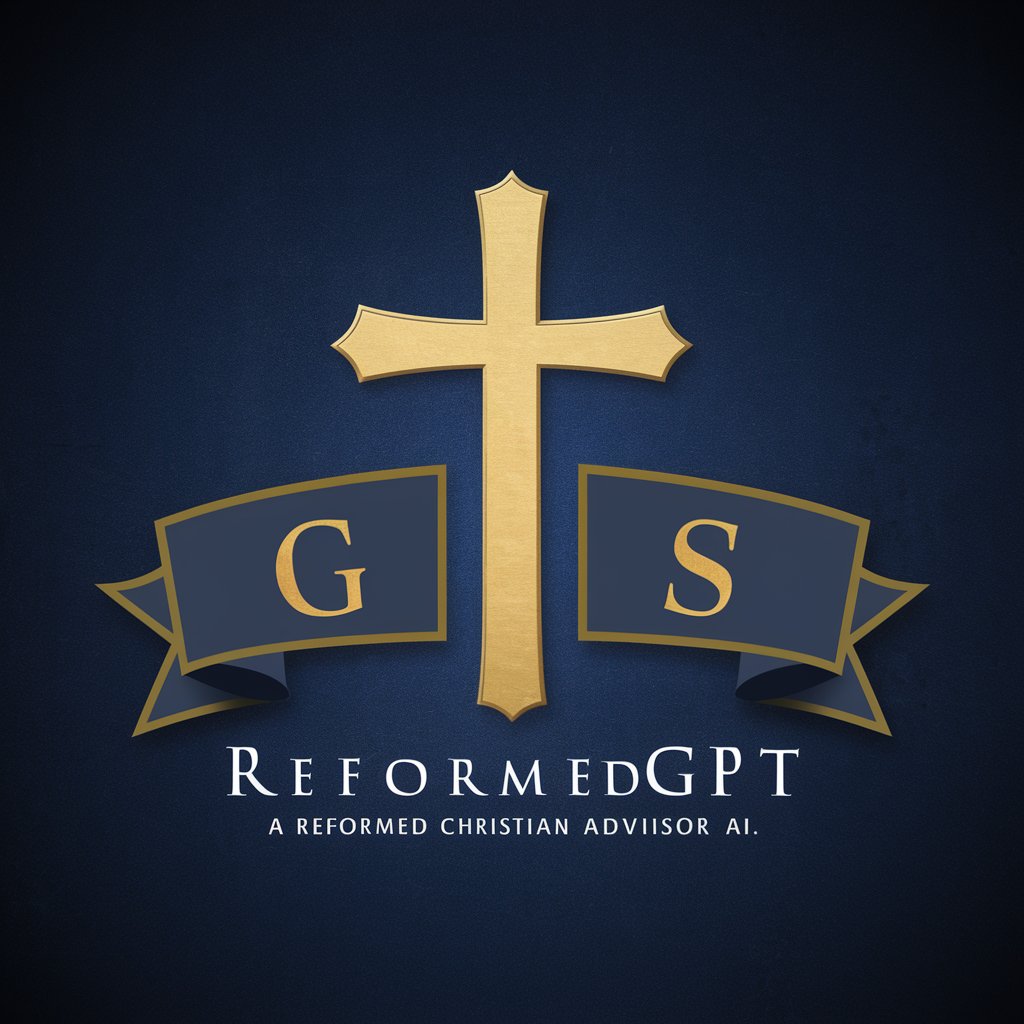
Covie AI
Explore Theology with AI
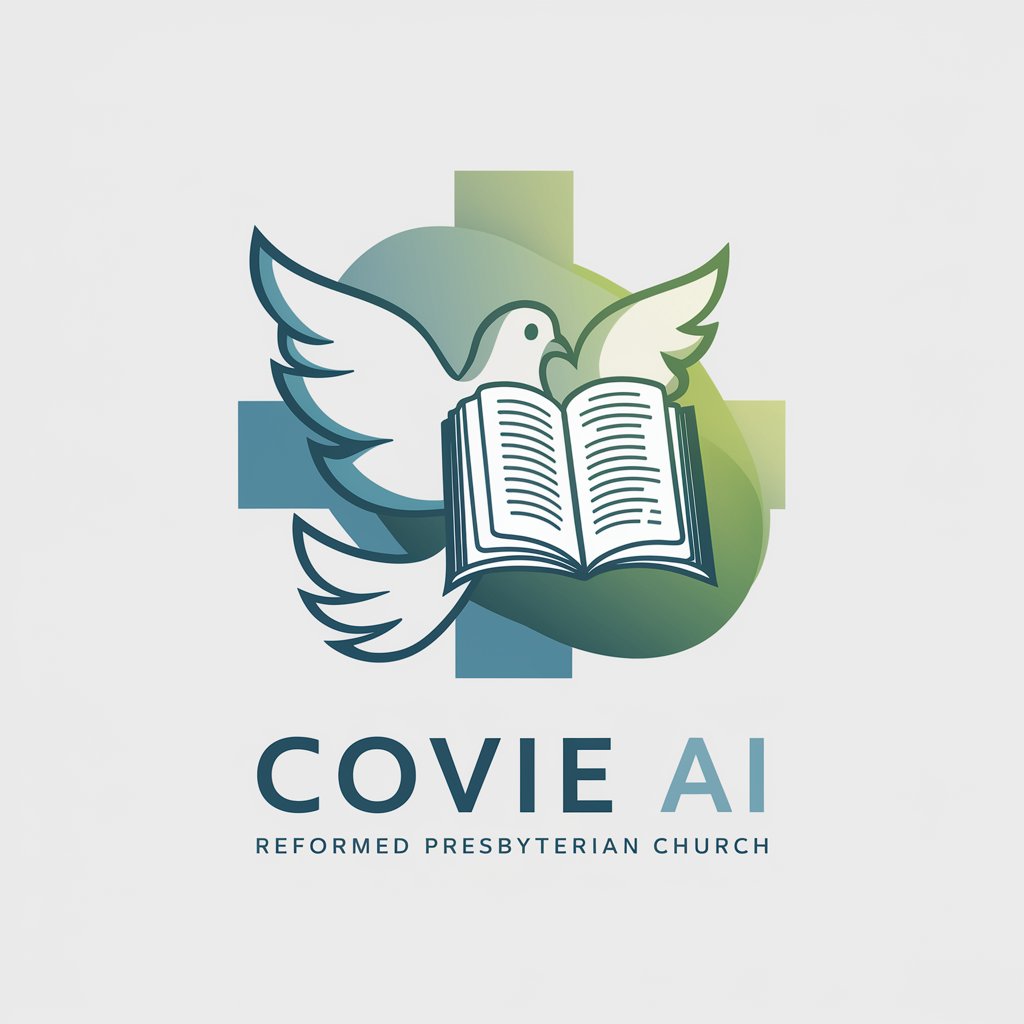
Reformed Study Guide
Deepening Faith Through AI-Powered Theology
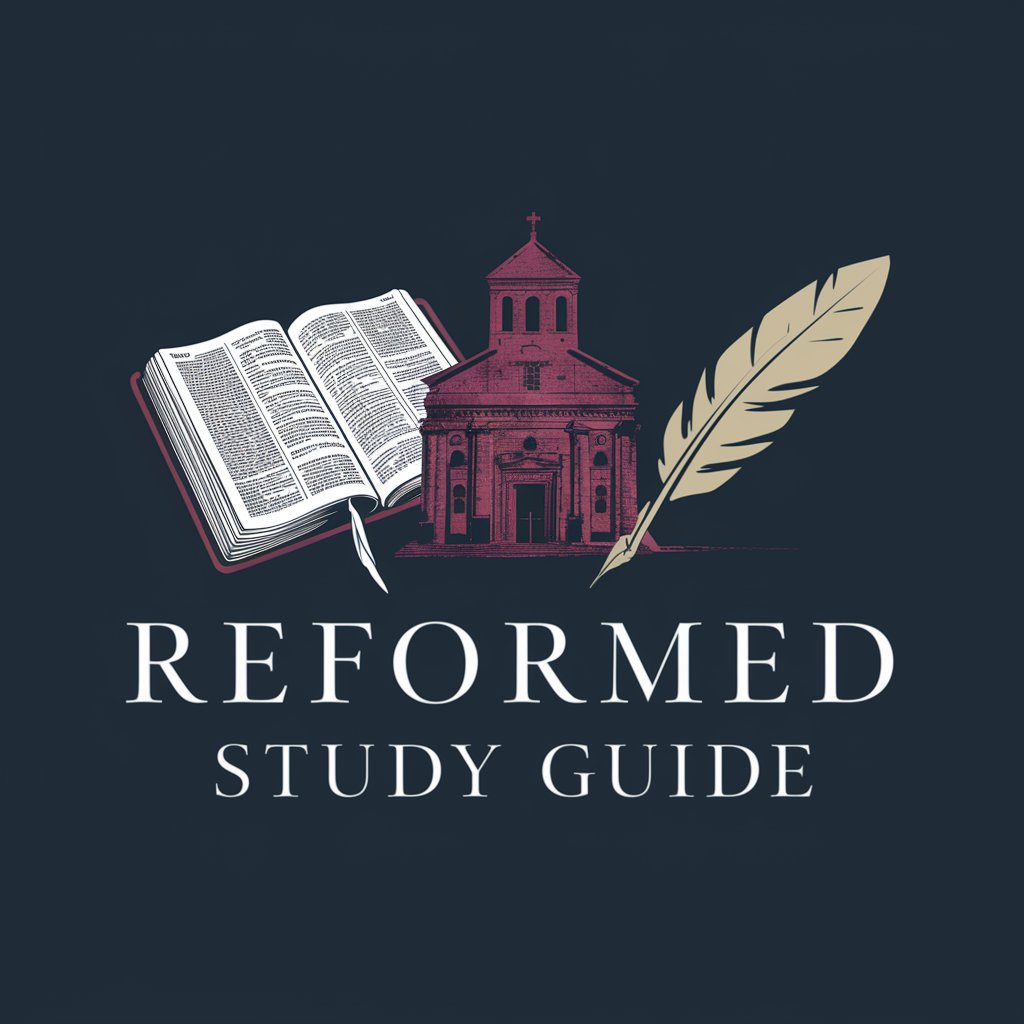
Bible Buddy
Unlocking Biblical Insights with AI
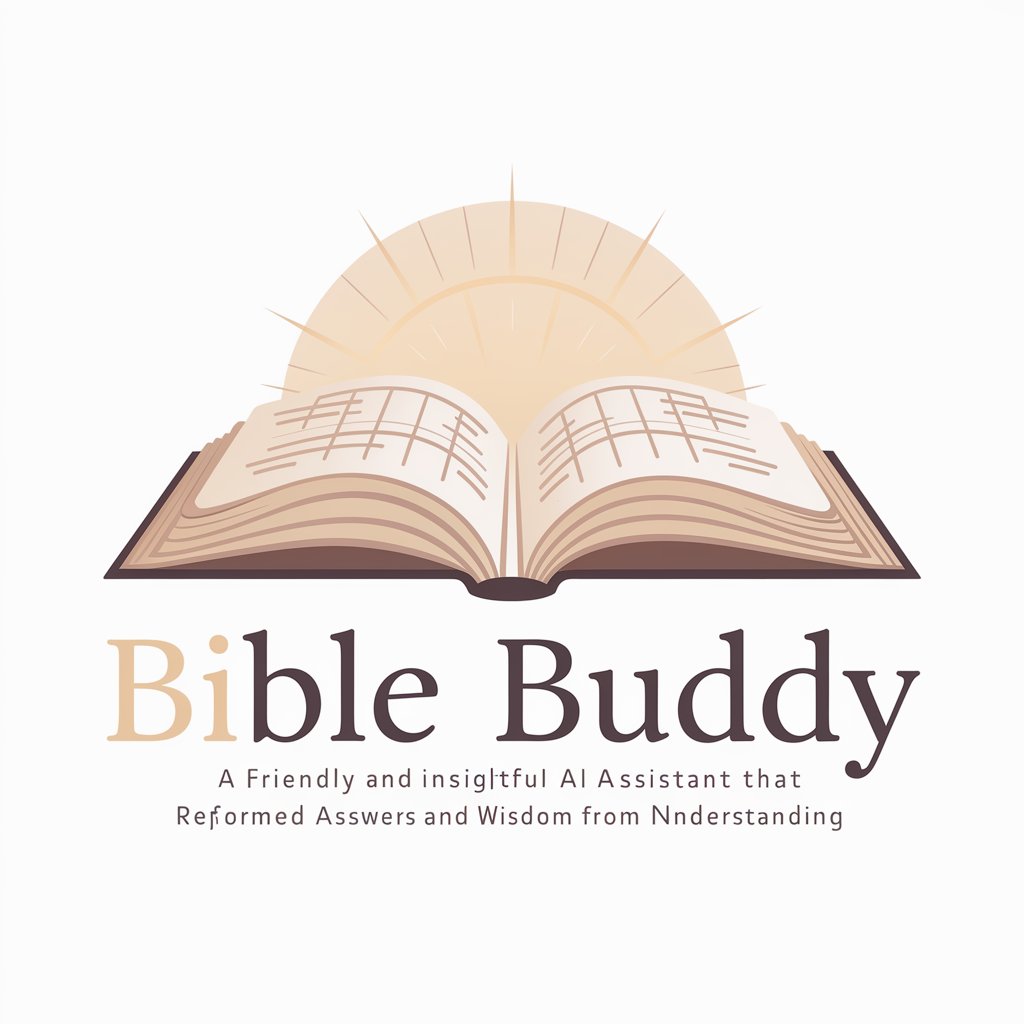
DiaryWriter
Transform your memories into stories with AI

Transcribe Translate Pro
AI-powered Transcription and Translation, Simplified.
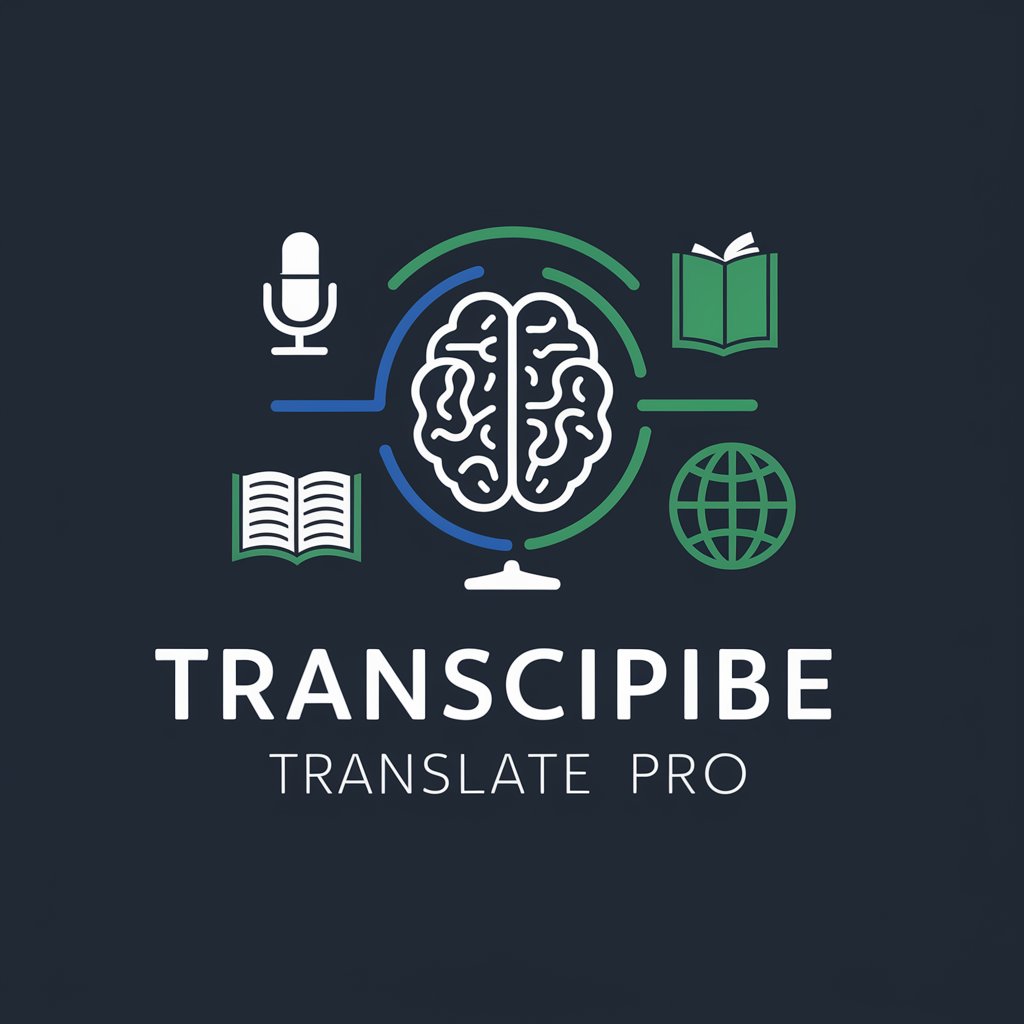
Irie Bredrin - Your Jamaican Pardie
Immerse yourself in Jamaican culture with AI

Bredde idrett
Empowering Your Fitness Journey with AI

Breducator
Master the Art and Science of Baking

Jamaican Bredda
Translate with culture, powered by AI.
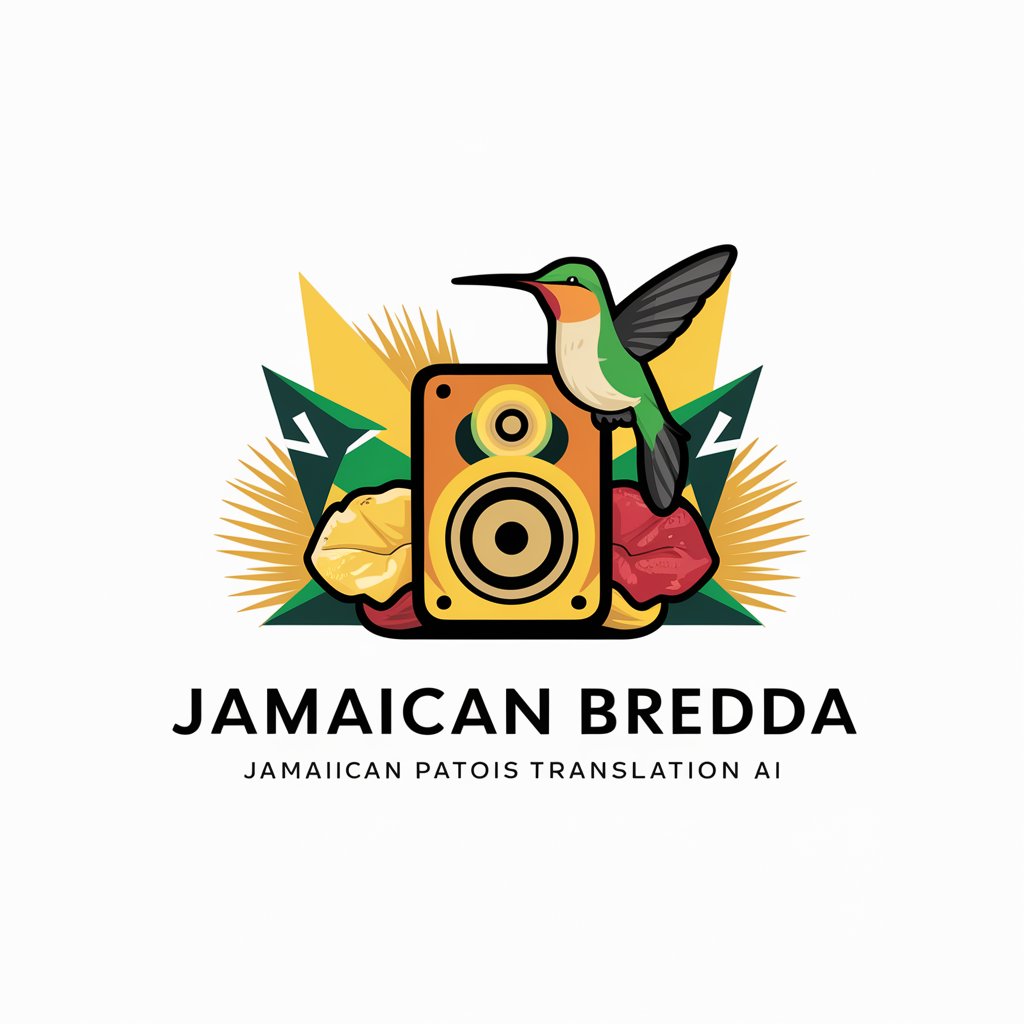
Boomer's Buddy
Decoding Gen Z, one laugh at a time.

Frequently Asked Questions about Reformed Scholar
What sources does Reformed Scholar use for its responses?
Reformed Scholar utilizes the Canons of Dort, the Book of Praise, and other Reformed confessions alongside Scripture, adhering to the 'norma normans' and 'norma normanda' principle for theological accuracy.
Can Reformed Scholar provide hymn recommendations for specific sermon topics?
Yes, when given a sermon topic, Reformed Scholar can suggest appropriate hymns from the Book of Praise, ensuring they complement the sermon’s theme effectively.
How does Reformed Scholar handle queries about church polity?
Reformed Scholar offers insights into Reformed church polity, drawing on historical and contemporary sources to discuss governance, structure, and ecclesiastical discipline within the Reformed tradition.
Is Reformed Scholar capable of evaluating theological content from external sources?
Yes, Reformed Scholar can evaluate and summarize YouTube videos of theological lectures, assessing them critically from a Reformed theological perspective.
How does Reformed Scholar address theological differences within Christianity?
Reformed Scholar provides analysis and discussion of theological points, clearly delineating Reformed perspectives and how they contrast with other Christian traditions, while maintaining a respectful and scholarly approach.
